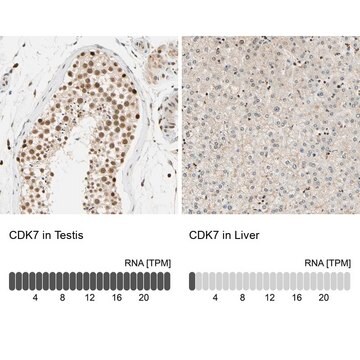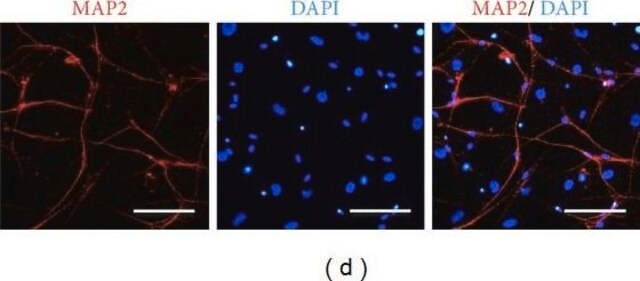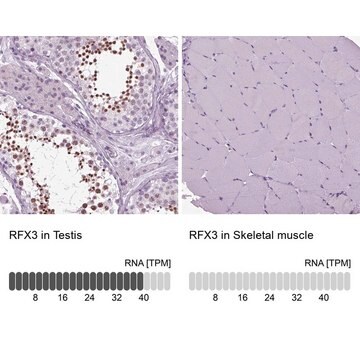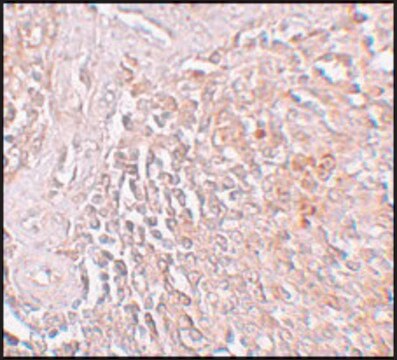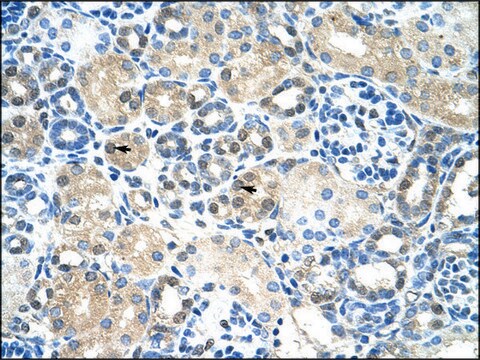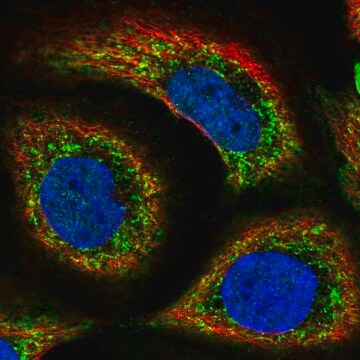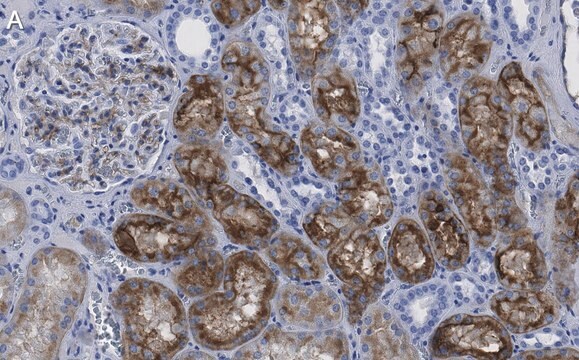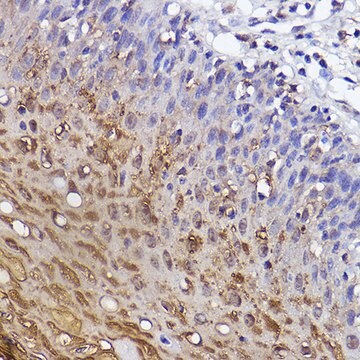C7089
Monoclonal Anti-Cdk7/CAK antibody produced in mouse
clone MO-1.1, ascites fluid
About This Item
Produtos recomendados
fonte biológica
mouse
conjugado
unconjugated
forma do anticorpo
ascites fluid
tipo de produto de anticorpo
primary antibodies
clone
MO-1.1, monoclonal
peso molecular
antigen 40 kDa
contém
15 mM sodium azide
reatividade de espécies
human
técnica(s)
immunocytochemistry: suitable
immunohistochemistry (frozen sections): suitable
immunoprecipitation (IP): suitable
microarray: suitable
western blot: 1:50,000 using a cultured human cell line extract
Isotipo
IgG2b
nº de adesão UniProt
Condições de expedição
dry ice
temperatura de armazenamento
−20°C
modificação pós-traducional do alvo
unmodified
Informações sobre genes
human ... CDK7(1022)
Descrição geral
Especificidade
Imunogênio
Aplicação
- Immunocytochemistry
- Immunohistochemistry (frozen sections)
- Immunoprecipitation
- Microarray
- Western blotting at a dilution of 1:50,000 using a cultured human cell line extract
Ações bioquímicas/fisiológicas
Exoneração de responsabilidade
Não está encontrando o produto certo?
Experimente o nosso Ferramenta de seleção de produtos.
Código de classe de armazenamento
10 - Combustible liquids
Classe de risco de água (WGK)
nwg
Ponto de fulgor (°F)
Not applicable
Ponto de fulgor (°C)
Not applicable
Certificados de análise (COA)
Busque Certificados de análise (COA) digitando o Número do Lote do produto. Os números de lote e remessa podem ser encontrados no rótulo de um produto após a palavra “Lot” ou “Batch”.
Já possui este produto?
Encontre a documentação dos produtos que você adquiriu recentemente na biblioteca de documentos.
Nossa equipe de cientistas tem experiência em todas as áreas de pesquisa, incluindo Life Sciences, ciência de materiais, síntese química, cromatografia, química analítica e muitas outras.
Entre em contato com a assistência técnica